Black Market Horns: Images from a Rhino Bust
Get the world’s most fascinating discoveries delivered straight to your inbox.
You are now subscribed
Your newsletter sign-up was successful
Want to add more newsletters?
Join the club
Get full access to premium articles, exclusive features and a growing list of member rewards.
Rhino Bust
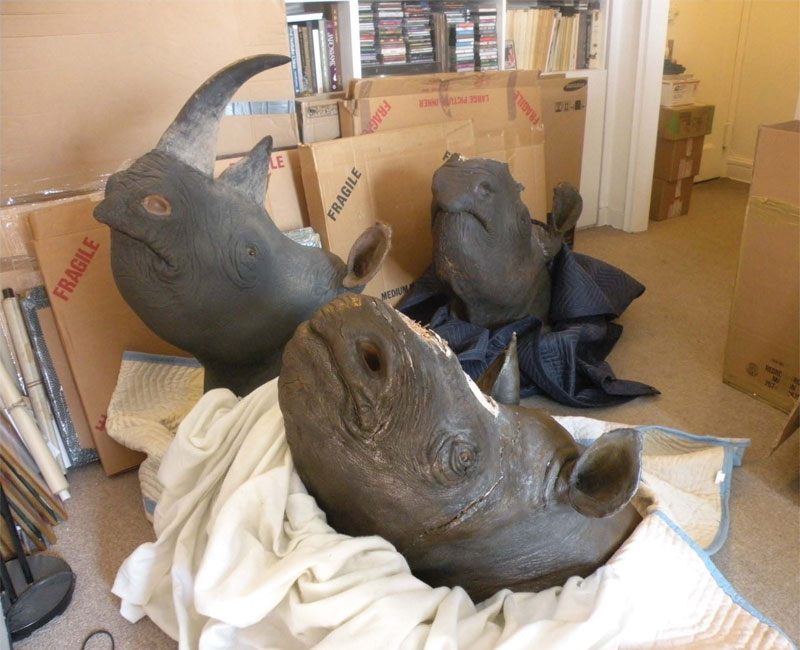
Prosecutors say Manhattan antiques dealer David Hausman volunteered to help with an investigation into the illegal sale of rhino horn, but then double crossed them, using a pair of fake horns to cover his tracks. Hausman has plead guilty on related charges. Above, three mounted rhino heads the feds found in Hausman's apartment when they raided it in February 2012.
The Double Cross
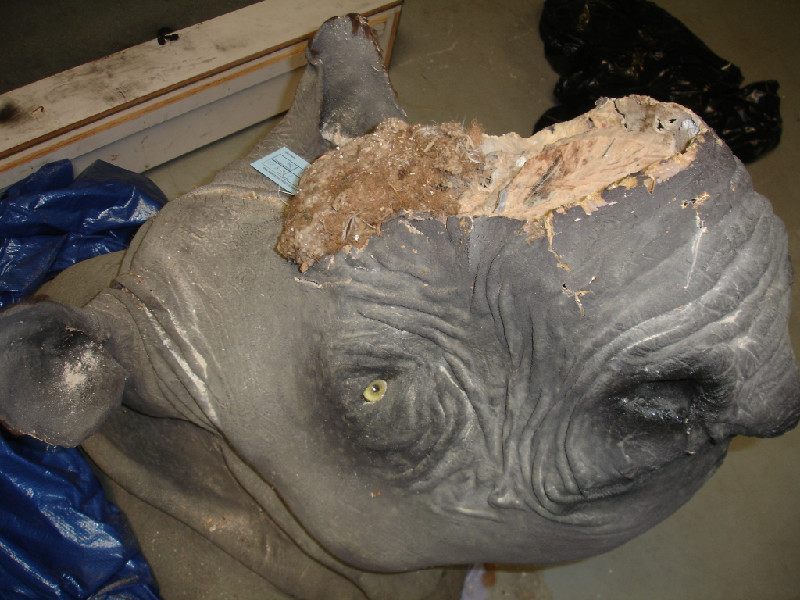
In December 2010, David Hausman told federal investigators that a black rhinocerous head bearing two valuable horns had been illegally sold by a Pennsylvania auction house. However, when Hausman found out the sale hadn’t gone through, he had a collaborator purchase the head for him, authorities say. Above, the rhino head in question, minus its horns.
Fake Rhino Horns
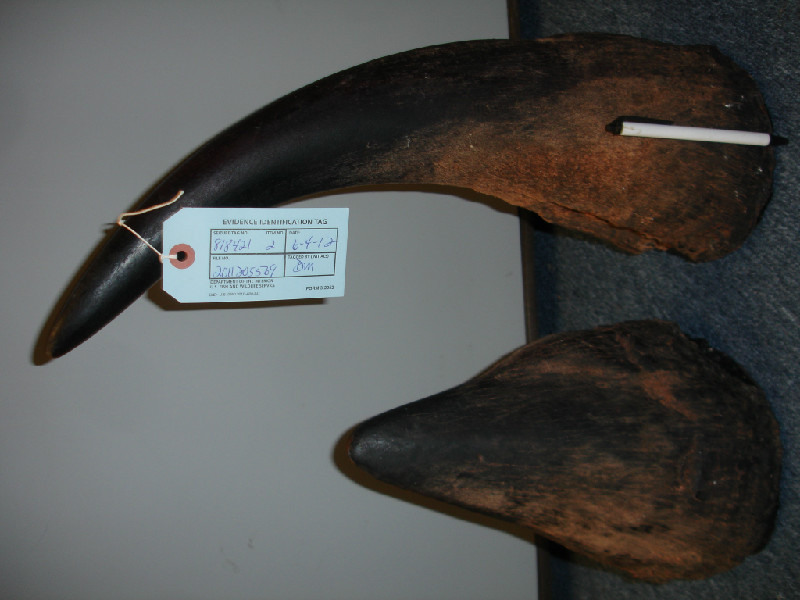
To hide his tracks, Hausman, a Manhattan antiques dealer, created a pair of fake horns and mailed them to his collaborator to put on the head, authorities say. He had her mail her the real horns, they claim. Above, the fake horns, which prosecutors used in the case against Hausman.
The Second Purchase
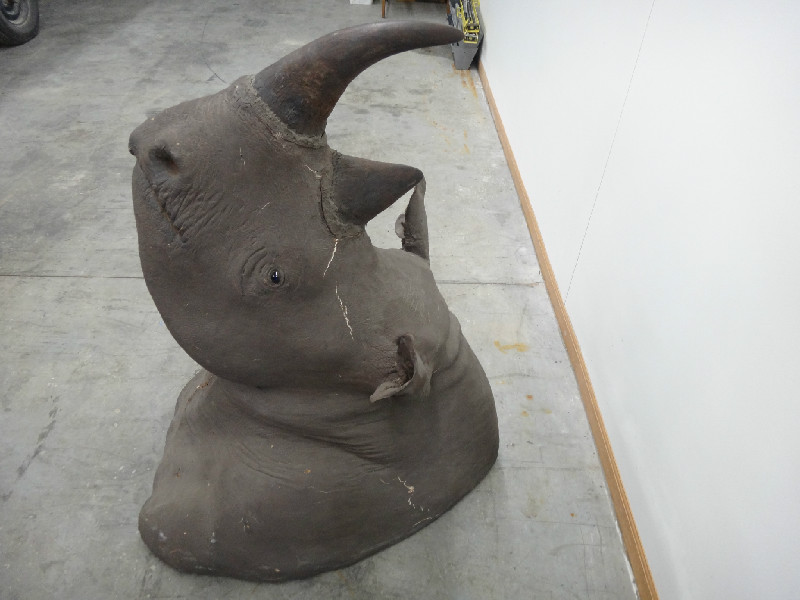
A court document describes how Hausman was caught red-handed during another transaction: When purchasing a second black rhinocerous head from a seller, who was actually an undercover agent, Hausman asked the seller/agent to falsify describe this head as more than 100 years — a change that would have made the sale legal. After, he picked up the head in November 2011 in an Illinois truck stop, agents say him sawing off its horns in a motel parking lot, the U.S. Attorney’s office has said.
Search and Seizure
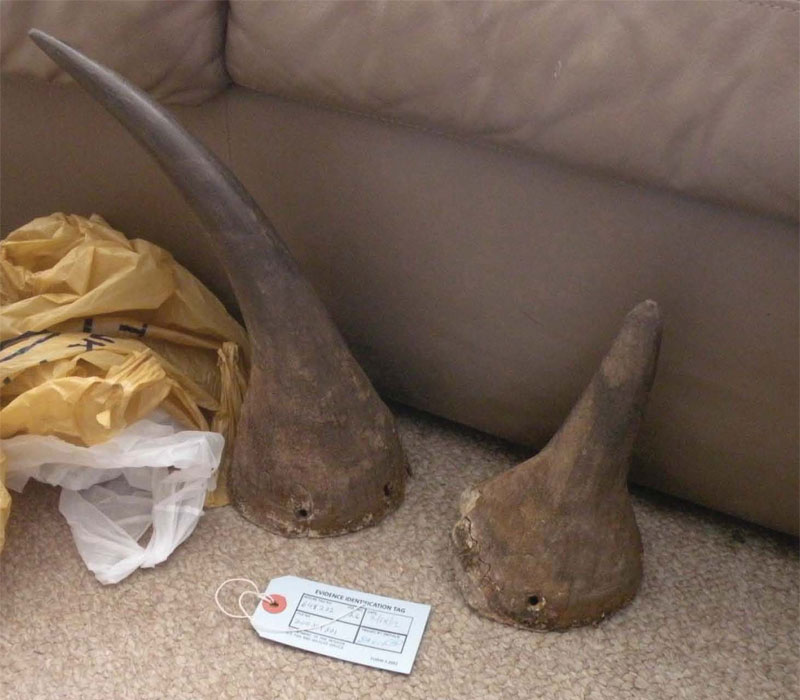
When federal agents raided Hausman’s Manhattan apartment in February 2012, they say they found four mounted black rhino heads, three of which had no horns, and one of which had fake horns. They say they also found six rhino horns, two of which are shown above, as well as items from horn and carving tools.
Case Closed
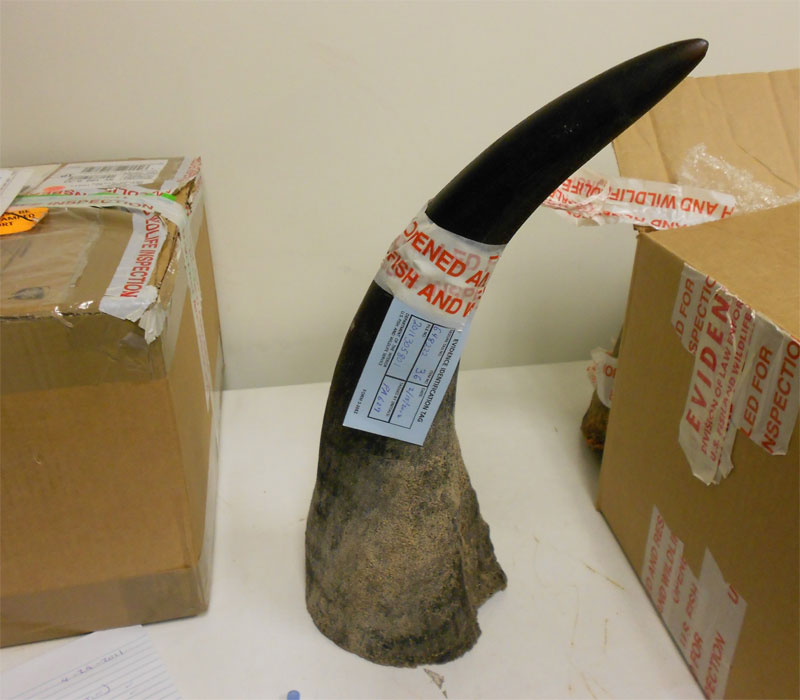
On Aug. 1, the Manhattan U.S. Attorney announced that Hausman had pled guilty to charges related to illegal rhino horn trafficking, these were one count of obstructing justice and one count of falsifying records. Above, another horn found by federal agents in Hausman’s apartment.
Endangered by Poaching
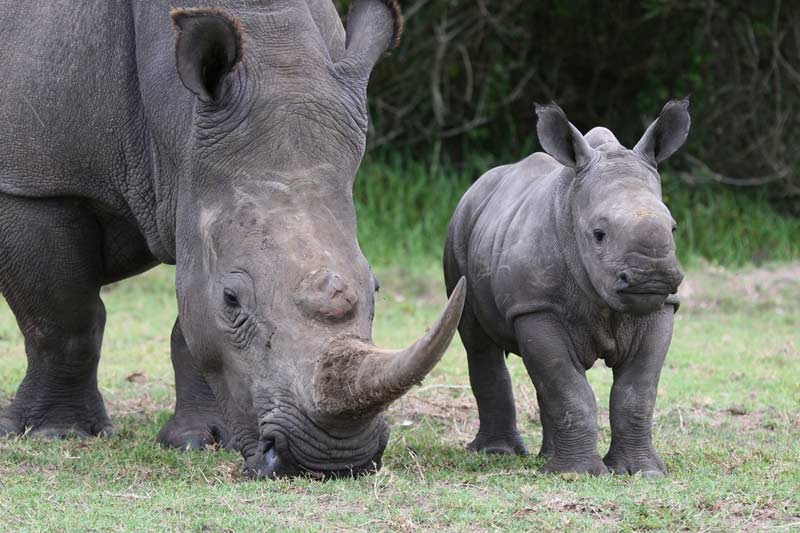
The sale of most rhino horns is illegal within the United States and internationally, because the treaty Convention on International Trade in Endangered Species of Wild Fauna and Flora prohibits nearly all commercial trade in rhino horns and parts from other endangered species. The international black market is a serious threat to rhinos. For the black rhinocerous, the species involved in this case, poaching is the primary threat, according to the International Union for Conservation of Nature and Natural Resources, which lists the species as critically endangered. A relative, the western black rhino, is now extinct.
Get the world’s most fascinating discoveries delivered straight to your inbox.
 Live Science Plus
Live Science Plus











